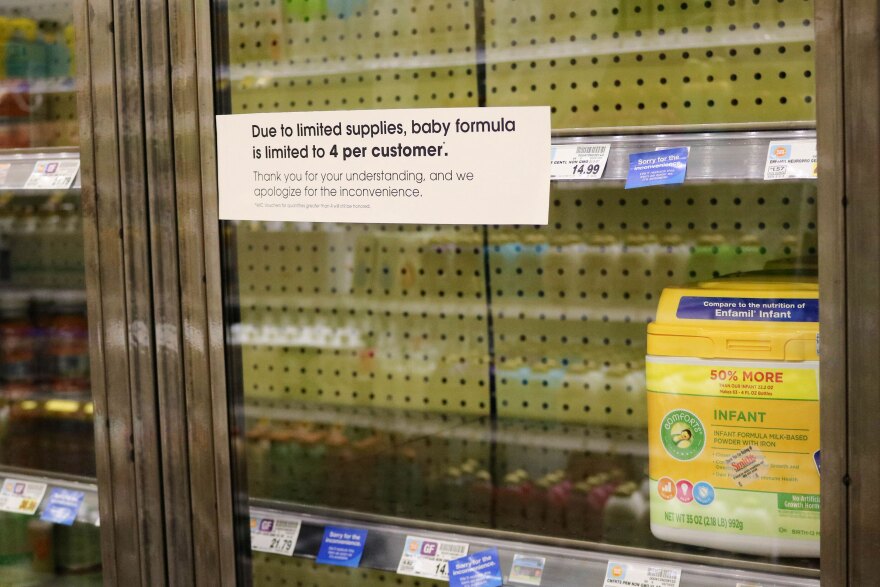One of the biggest manufacturers of baby formula in the U.S., Abbott Nutrition, is set to reopen its Michigan factory after reaching an agreement with the Food and Drug Administration. The closure was due to a voluntary recall that has further stressed supply chain issues for baby formulas.
While it will still take a few months for supplies to return to stores, there's a list of things Utah pediatricians are asking parents not to do amid the nationwide shortage. For example, families should not give their babies goat or cow’s milk or dilute formula, or try to make their own.
Dr. Wendy Hobson-Rohrer, a pediatrician at University of Utah Health, said it might be OK in some instances to give cow milk if a child is over the age of six months but to consult a doctor first.
“Formulas are really made with a lot of technology,” she said. “There's a lot of study that has gone into formulas and there is the exact amount of proteins, minerals, carbohydrates, all of the things that a baby needs to grow have been really looked at in terms of formulas that are in the right proportions.”
It can also impact a baby's electrolyte abnormalities by not receiving the right amount of sodium, she said.
There are some steps families can take like switching to a similar formula with the guidance of a doctor.
“If your baby's taking cow’s milk formula from one brand, you can switch to cow's milk formula of another brand,” said Dr. Michelle Hofmann, pediatrician and deputy for the Utah Department of Health. “So it's important that you have enough supply left to gradually decrease and introduce the new formula.”
There’s also been an increase in sharing breastmilk in Utah during the shortage.
While that’s not typically recommended by the Academy of Breastfeeding Medicine due to the lack of screening, Elizabeth Kirts, lactation specialist at Mountain West Mothers’ Milk Bank, said there are steps mothers can take.
“It is a very good idea to work with their own health care provider, to look at all those benefits and risks and then to do very good screening and interviewing.”
There are also options for mothers who once breastfed but are no longer producing milk and want to donate. They can work with a lactation specialist to begin the process again, Kirts said.
A representative from Utah Women, Infants and Children’s program said they have expanded their formula packages at grocery stores for families so there’s more flexibility in purchasing formulas.
Sen. Mike Lee, R-UT, also recently introduced legislation to assist with the shortage. The bill would create a six month waiver to Infant Formula Tariffs and Food and Drug Administration regulations. However, the FDA has already begun to address the issue.



